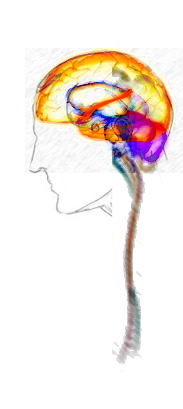The Neurosurgery Unit works in close concert with the Intensive Care Unit which is ranked as the best in Bogotá and one of the best in the country. Thus, the San Ignacio Hospital was designated the referral center for nervous system trauma patients.
• Treatment of traumatic head/brain injury
• Treatment of traumatic spine and spinal cord injuries
• Emergency surgical treatment in children and adults
We feature the best diagnostic imaging technology (64-detector multi-slice CT scanner, MRI spectroscopy), stereotactic biopsy equipment, stereotactic guided craniotomy, cortical stimulation in high-risk brain lesions resection, neuroanesthesia for all procedures including intra-operative awakening and our partnership with the Javeriana Oncology Center. Patient care is delivered within an entirely humanized and academic process.
The Skull Base Clinic is the only clinic of this type in the country. Some of the most common procedures in this area include:
• Open and stereotactic cerebral biopsies.
• Cerebral and spine tumor resection in children and adults.
• Resection of complex tumors of the skull base and posterior fossa.
• Endoscopic resection of cerebral tumors.
• Radiosurgical treatment.
X-ray-assisted procedures provided through a vascular route to treat cerebrovascular or spinal vascular lesions. These techniques are offered as a complementary or alternative curative treatment to open surgical management for conditions including:
• Cerebral aneurysm clipping.
• Resection of vascular malformations.
• Endovascular management of aneurysms and spine and cerebral malformations.
• Radiosurgical management of vascular malformations.
• Minimally Invasive Spine Surgery
Unit is in charge of the multi-disciplinary treatment of patients with spine problems, striving to become the leader of back problem treatment. The unit performs reconstructive, minimally invasive, endoscopic, and motion preservation spine surgical procedures of all segments (cervical, thoracic, lumbar). This comprehensive focus allows the patient to accede all globally existing possibilities of treatment options. the Spine Division of the Neurosurgery Unit offers patients treatments featuring the most up-to-date international standards of forefront spine centers in the world.
• Implantation of cervical and lumbar artificial discs.
• TLIF minimally invasive fusion.
• Interspinous posterior dynamic percutaneous stabilization.
• Minimally invasive lumbar pedicle dynamic stabilization.
• Endoscopic microsurgery for lumbar disc hernia.
• Spine Vertebroplastia.
• Spine kifoplasty.
• Thoracoscopic thoracic spine stabilization.
• ALIF anterior fusion by retroperitoneal minilaparotomy.
• Minimally invasive -atlanto-occipital-axial fusion.
• Percutaneous spine pedicle screws implantation.
• Bilateral endoscopic unipolar laminectomy of the lumbar spine.
• Minimally invasive anterior arthrodesis of the cervical spine.
The Neuroscience Department is capable of offering comprehensive pain treatment. Moreover, we offer support to the neurophysiology, internal medicine and surgical specialties programs, through seminars which depending on the level allow the introduction of the basic aspects of pain treatment in a clear manner:
• Epidural blocks.
• Facet blocks.
• Discography.
• Radiofrequency neurolysis to treat facet joint and sacroiliac disorders.
• Percutaneous radiofrequency nucleolysis.
• Minimally invasive spine surgery.
Cephalea Clinics: Cephalea or headache is one of the most frequent reasons for consultation at the outpatient clinic and the emergency room. Precise diagnosis and treatment protocols have been developed with satisfactory results.
Demyelinative Diseases: Such as multiple sclerosis cause various disabling symptoms developing serious sequelae at a median and long term. The judicious study of the disease and permanent update in diagnostic and therapeutic methods has allowed the development of therapeutic protocols which help affected patients to deal with functional limitations.
This clinic is centered in epileptic patient care and rigorous selection of those who meet criteria for drug resistant/refractory disease. We are the national referral center for our Epilepsy Surgery Program. Available diagnostic and therapeutic procedures include:
• Placement of sphenoidal electrodes
• Implantation of subdural grid electrodes
• Intra-operative cortical stimulation
• Selective amygdalohipocampectomy
• Temporal lobectomy
• Vagus nerve stimulation
We have a specific outpatient clinic for Botulinum toxin, and specialized consultation for movement disorders. Patients receive a multi-disciplinary assessment by neurology, psychiatry, neuropsychology, stereotactic and functional surgery and occasionally by internal medicine and physical medicine. Using these concepts each patient is discussed in a Medical Surgical Board, where the best treatment plan is defined. Patients with Parkinson ́s Disease, dystonías, tremors, tics, coreas, etc. are treated by this division.
Cerebral endoscopy is a subspecialty of neurosurgery which permits the conduction of minimally invasive complex procedures. Some of the procedures we perform are:
• Endoscopic third ventricular cysternostomy
• Endoscopic biopsy of lesions
• Resection of intraventricular cysts
• Endoscopic assisted ventricular catheter placement
• Endoscopic aqueductal plasty, etc.
Additionally, cerebral endoscopy is very useful for open microsurgical procedures such as cerebral aneurysm clipping and resection of pontocerebellar angle tumors.
The Neurology Unit supports the San Ignacio Hospital Memory Clinics in a permanent and continuous manner through comprehensive assessment sessions and posterior case discussion to ensure a comprehensive evaluation and the most optimum management of consulting patients in close concert with geriatrics, psychiatry and neuropsychology specialists.
We created a line on in-depth study of the various degenerative neurologic diseases with cognitive involvement such as Alzheimer ́s disease, frontotemporal dementia, Lewy Body dementia, vascular dementia, minimal cognitive impairment and other neurological diseases with secondary cognitive deterioration such as Parkinson's disease, epilepsy, Huntington's disease, etc.

 English
English Español
Español